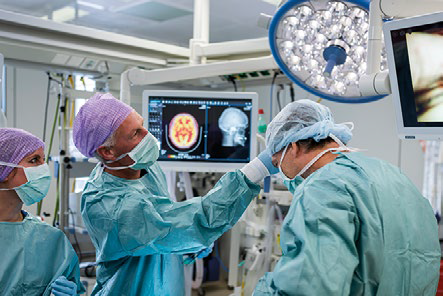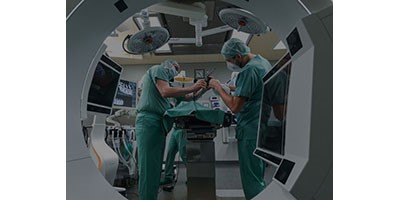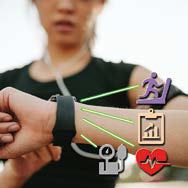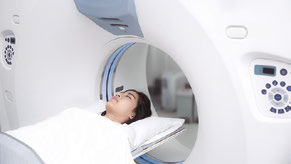The medical sector faces great challenges around the world but many of them can be addressed by adopting IoT (Internet of Things) solutions and developing advanced hospitals that provide “smart” and patient-centric healthcare. Attend more patients every day and make faster and more accurate diagnoses, as well as develop treatments that start earlier; all of them are feasible targets.
The modern medical sector is trying to go from being curative - offering care to the elderly and the sick - to becoming a system based on prevention, but this requires that hospitals must evolve towards full interoperability. This means establishing efficient and secure intercommunications throughout the hospital and between buildings located many kilometers away and even in different countries in order to provide, share, analyze and take action with patient data in real time. Currently, the vast majority of hospitals use their own closed IT systems, which are only accessible and manageable by their staff. However, great technological advances are already being implemented that add the power of IoT to existing hospitals in order to offer tangible benefits to both patients and staff.
For example, Advantech has created a range of integrated platforms and services that are based on IoT technology. Among these solutions are the computerization of the health care point (POC), integrated operating rooms, smart rooms, closed-loop medication administration and telemedical care applications. The company, through its iHealthcare division, has supplied a POC touch computer that has helped minimize the use of paper by healthcare personnel. It is a certified Panel PC for medical applications that can be used in various areas of a hospital, such as patient rooms, operating rooms and intensive care units. The models belonging to this range allow different configurations to be obtained through Wi-Fi modules, smart card readers, battery packs, RFID readers, DVD drives or Bluetooth modules.
This family of Panel PC POC offers memory capacities from 8Gb to 32Gb, storage up to 128Gb, various operating systems (including Windows 10 IoT) and up to two Gigabit Ethernet interfaces (isolated). With the ability to add PCIe, mini PCIe or M.2sion expansion slots, the POCs come with optional webcams, various touch screens, up to six USB 2.0 or 3.0 ports, and barcode readers. All models are based on the Intel QM387 chipset, incorporate Intel HD graphics and use in-plane switching topology to display sharp, lifelike images without color distortion or image distortion on 10” to 24” touch screens. Its isolated design offers protection against electrical leakage for the various ports, while the entire case is IP54 protected. Another innovation that is transforming healthcare delivery is Advantech's medication dispensing cart, which features a medicine cabinet with containers containing each patient's assigned medication. Patients receive a bracelet with a barcode, which can be read to open the container.
The collected data is then automatically uploaded to the hospital's electronic record system, reducing the likelihood of medical records being mixed up or lost, minimizing the risk of medical errors, as well as ensuring that all accessible information is up to date. Features include electric height adjustment, quick change from passive to active mode, and expandability with various accessories. These accessories include file storage and other drawers, a waste and needle container, an IV fluid rack, a barcode reader, a printer, and a video camera.
A mobile workstation is also available which has been developed from the medical cart with the addition of advanced Wi-Fi connectivity. This workstation improves the effectiveness of telemedicine in intensive care units by enabling real-time delivery of patient medical records, a doctor's diagnosis, and vital signs monitoring results within 24 hours to a facility centralized doctor. The immediate availability of accurate data can be a matter of life and death in such situations. Advantech has also developed a video over IP solution that is digitizing operating rooms. This solution is capable of delivering 4K UHD (4096 x 2160 pixels) video streaming over IP with near-zero latency image quality and no compression to any display in the OR, allowing an expert to monitor and support surgeons. in real time from anywhere in the world.
This intelligent, integrated way of working for the OR team – with multiple video sources displayed simultaneously on one screen with integrated video management – also allows users to easily switch between video sources. To learn how hospitals across Europe and beyond are implementing the latest technology solutions, check out these case studies or contact the Advantech office in your country to discuss your needs.








